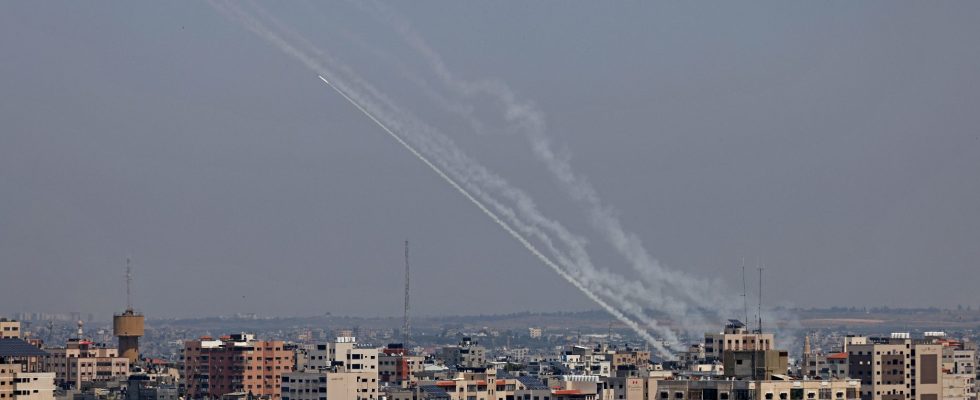After five days of clashes by interposed rocket fire, calm has returned between the Gaza Strip and Israel. A few more rockets were fired in the quarter of an hour following the theoretical entry into force of the truce, followed by new Israeli strikes before a real return to calm. According to the Israeli army, two rockets were still fired from Gaza before midnight, without causing any casualties.
This Sunday, May 14 in the morning, the Cogat, the military body which manages the civilian affairs of the Palestinians in the occupied territories, announced “the partial and gradual reopening” of the crossing points of Erez, in the north of Gaza, and Kerem Shalom, to the south.
35 dead, including 34 Palestinians
This week’s deadly escalation was the most violent between Gaza and Israel since August 2022. These clashes claimed the lives of 34 Palestinians, including 6 Islamic Jihad commanders, and at least 13 civilians, including seven minors. On the Israeli side, an octogenarian was killed Thursday in Rehovot, in central Israel. This new war began Tuesday with air raids that killed three military commanders of Islamic Jihad, a movement described as “terrorist” by Israel, the United States or the European Union.
“I am deeply saddened by the loss of life […] including those of children and women, caused by Israeli airstrikes and the indiscriminate firing of rockets into Israel by Islamic Jihad and other groups,” said the UN envoy for the Middle East, Tor Wennesland, in a statement, “I call on all parties to respect the ceasefire” and “I look forward to the restoration of access” for humanitarian aid to Gaza. he adds.
A ceasefire brokered by Egypt
Israel, the United States and the United Nations thanked Egypt for its role in mediating the fragile ceasefire that was reached on Saturday night. “We are grateful for the decisive diplomatic efforts that have been delivered by President Abdel Fattah Al-Sisi and by other Egyptian officials as well as by the Emir Sheikh Tamim Bin Hamad Al Thani in Qatar”, wrote the attaché of White House press, Karine Jean-Pierre, in a press release.
Israel’s National Security Adviser, Tzachi Hanegbi, also expressed his gratitude to the Egyptian president for his efforts to broker the deal, according to a brief statement issued Saturday by the office of the President. Prime Minister Binyamin Netanyahu. “We want to thank Egypt for its efforts,” Mohammad al-Hindi, an official in the political bureau of Islamic Jihad, told Agence France Presse. Egypt is a traditional mediator between the two belligerents.
Different interpretations of the truce
However, the negotiated truce seems fragile. And for good reason: Israel and Gaza do not seem to agree on the terms of the latter, in particular on the question of whether Israel would end the targeted assassinations of Palestinian militant leaders. In Gaza, Tariq Salmi, spokesman for Islamic Jihad, warned Israel against “any stupid action or assassination of commanders […] of the Palestinian resistance”, while Mohammad al-Hind announced an agreement including a commitment by Israel “to stop targeting fighters”.
But Israel denied having made such commitments, saying only that it would not shoot until there was a threat. “Israel’s response to the Egyptian initiative” means that “the response to calm will be calm, and if Israel is attacked or threatened, it will continue to do whatever it needs to do to defend itself,” it said. an official statement from Tsachi Hanegbi, national security adviser to Prime Minister Binyamin Netanyahu, without confirming any agreement.
